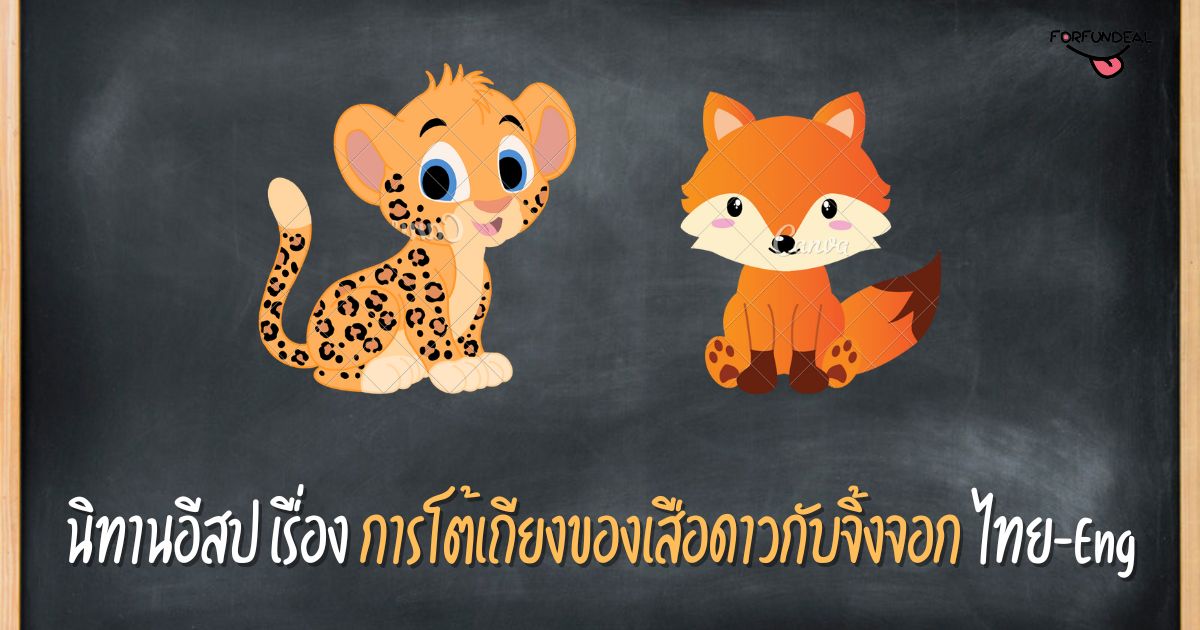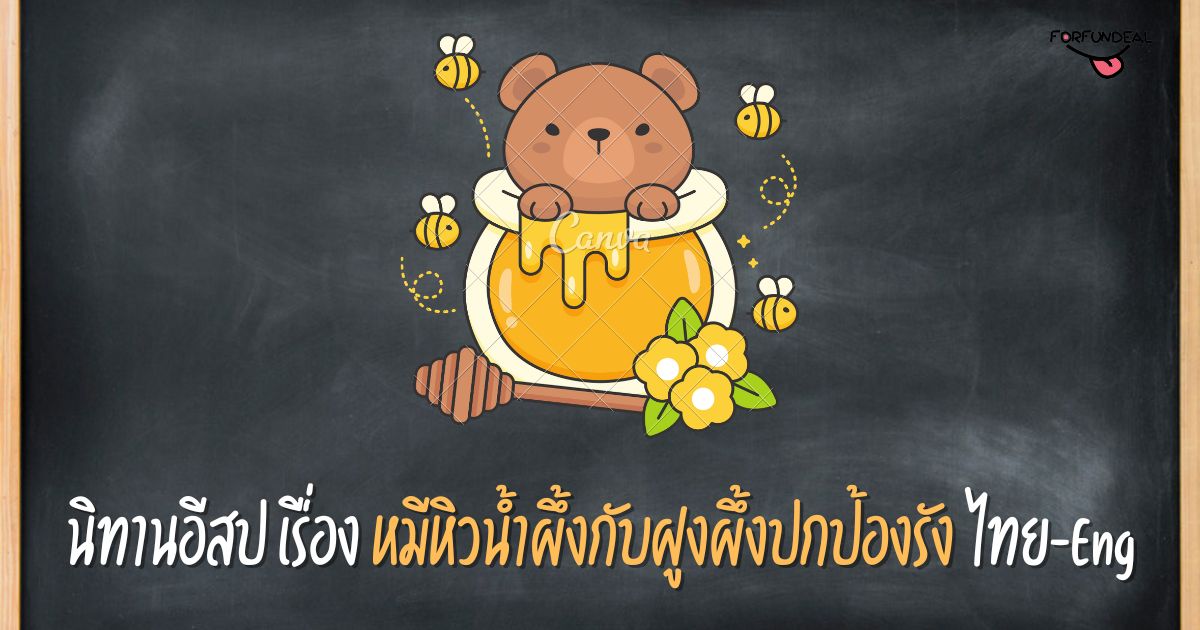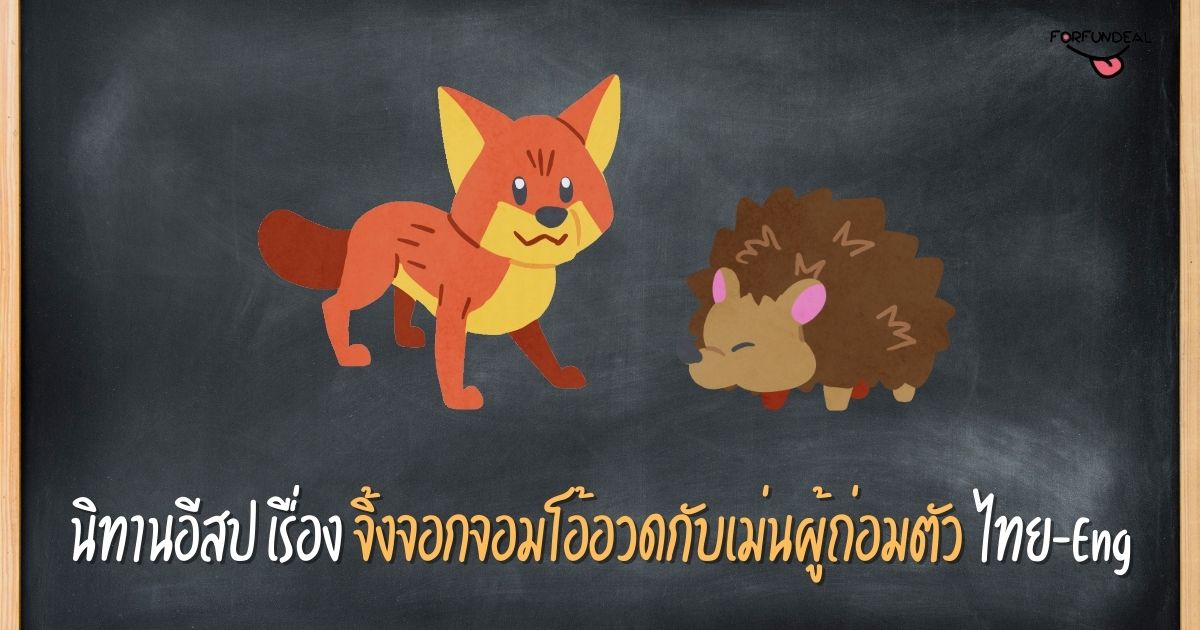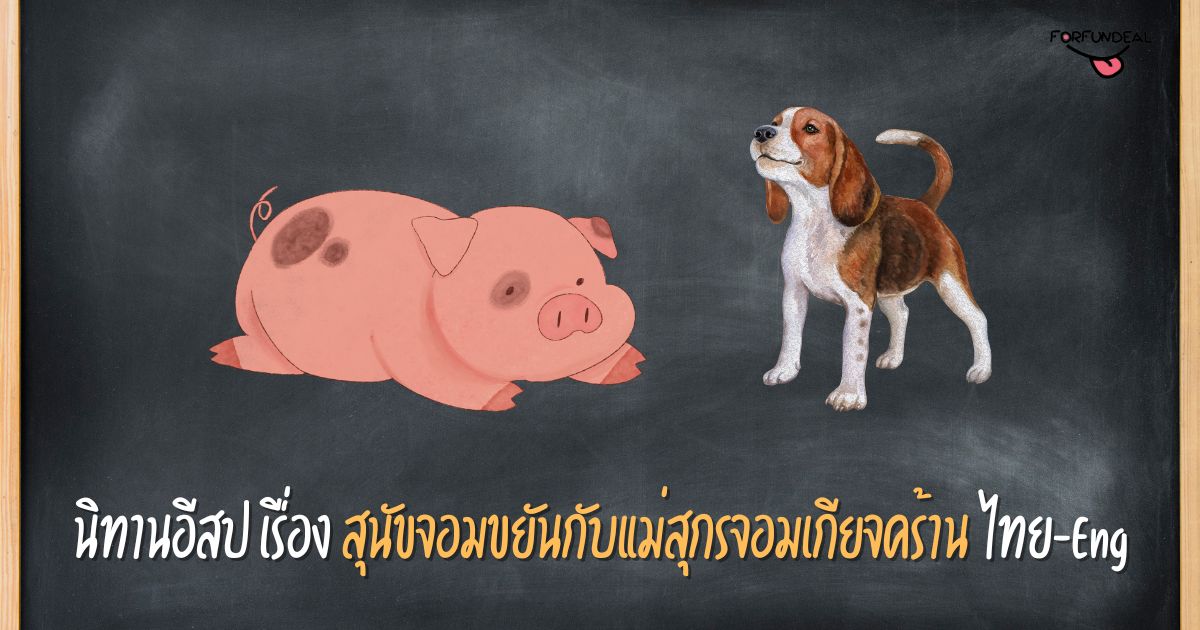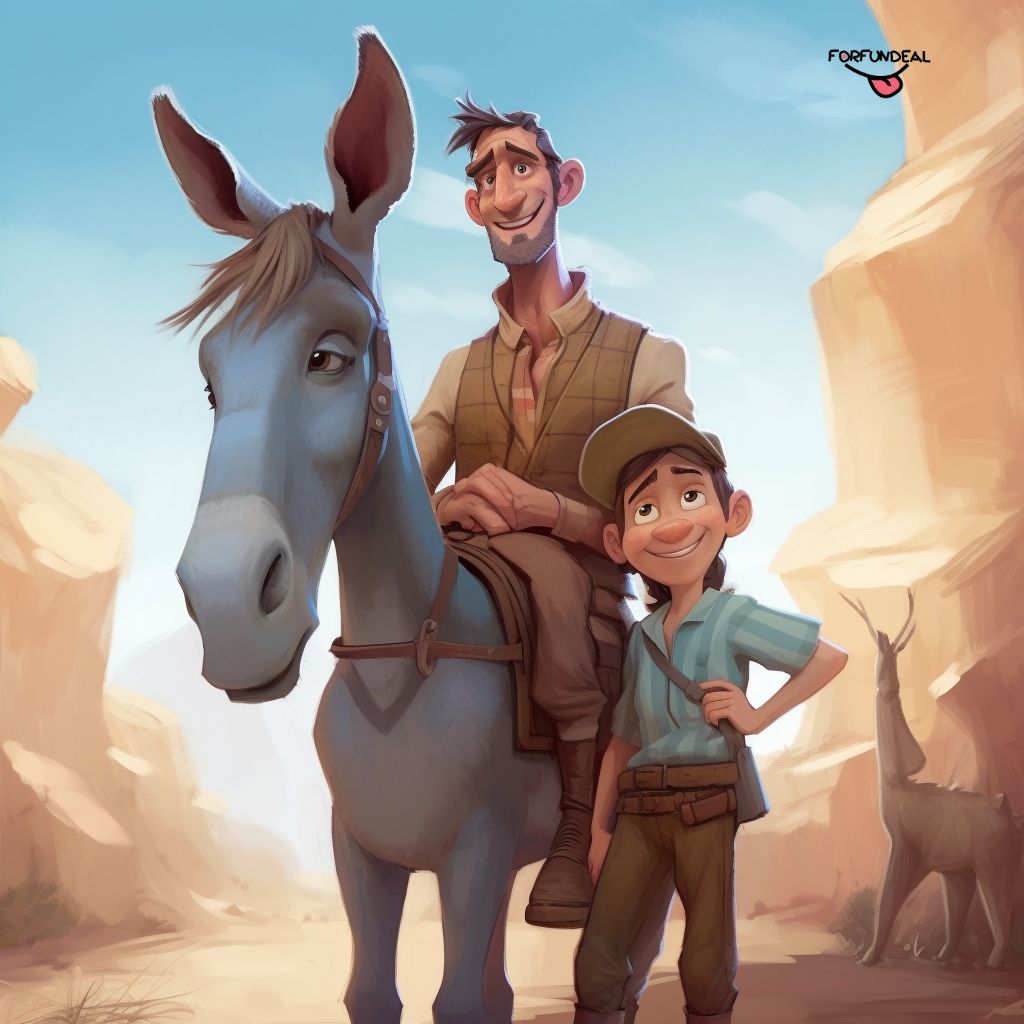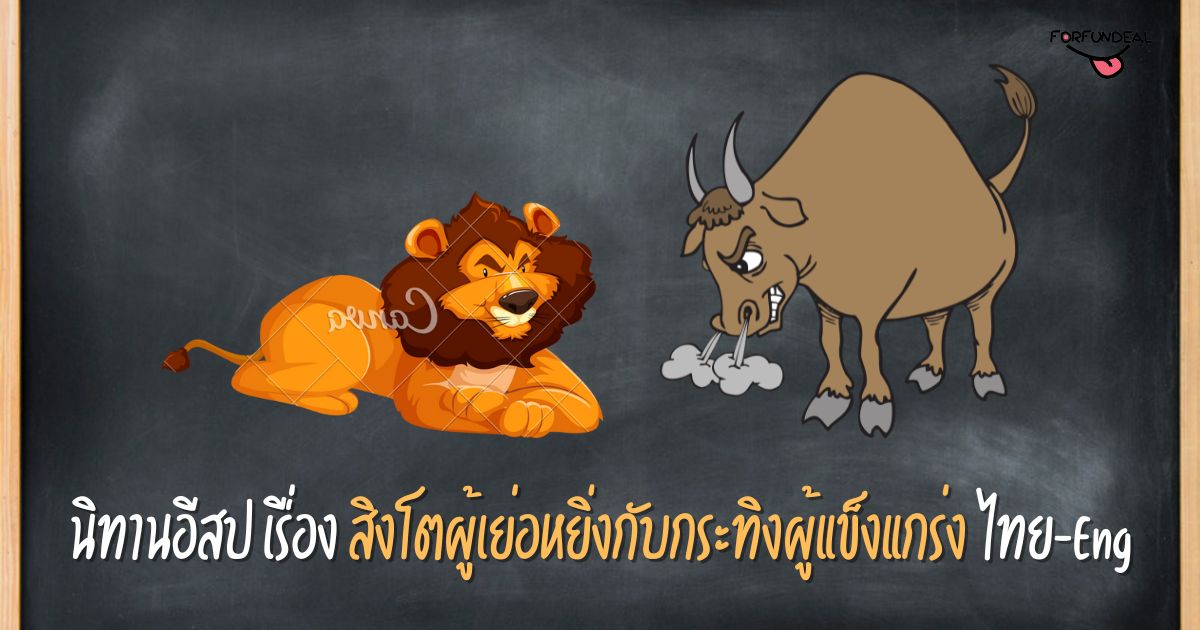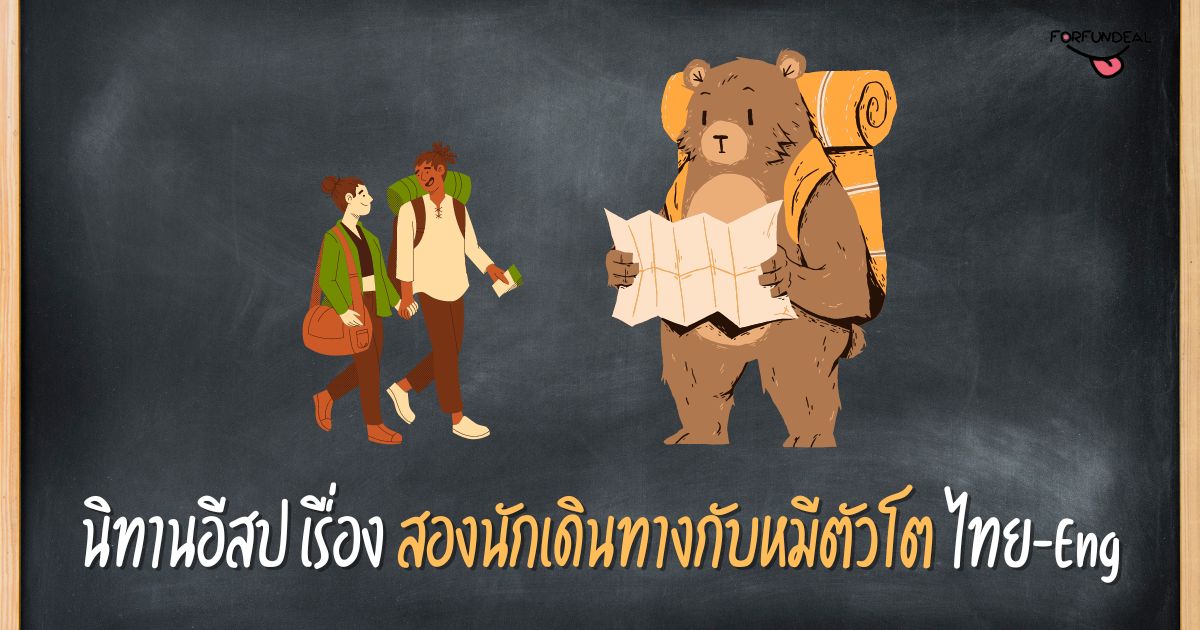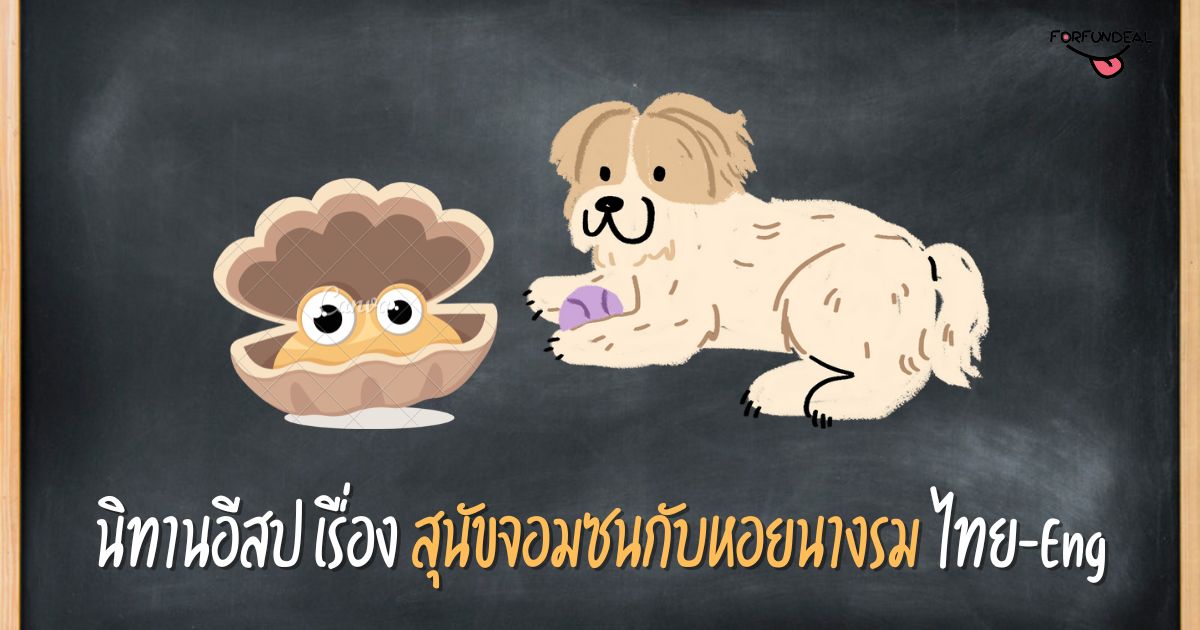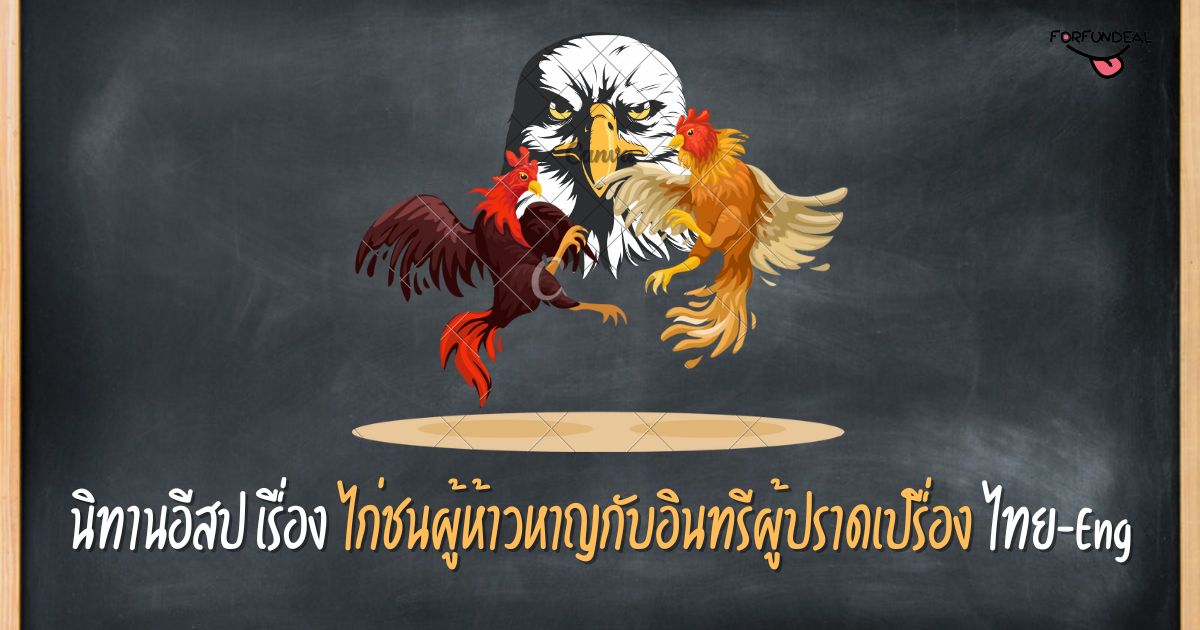“การโต้เถียงของเสือดาวกับจิ้งจอก” เป็นนิทานอีสปที่สอนเราการโต้เถียงกันไปกันมาที่ไม่มีสาระย่อมไม่เกินผลดี และคุณค่าของแต่ละคนที่มีไม่เหมือนกัน รวมถึงความสำคัญในการช่วยเหลือ และเห็นอกเห็นใจผู้อื่น
นิทานอีสปเรื่องการโต้เถียงเสือดาวกับจิ้งจอก
กาลครั้งหนึ่งนานมาแล้ว สุนัขจิ้งจอกกับเสือดาวกำลังสนทนากันเกี่ยวกับรูปร่างหน้าตาของพวกมัน สุนัขจิ้งจอกโอ้อวดความฉลาดและความสามารถในการหลอกลวงผู้อื่น ในขณะที่เสือดาวโอ้อวดเรื่องความเร็วและความสวยงามของมัน ขณะที่พวกมันสนทนากันต่อไป พวกมันก็เริ่มโต้เถียงกันว่าใครเหนือกว่ากัน
Once upon a time, a fox and a leopard were having a conversation about their appearances. The fox boasted about its cleverness and ability to deceive others, while the leopard boasted about its speed and beauty. As they continued their conversation, they began to argue about who was more superior.
เพื่อยุติข้อโต้แย้ง พวกเขาตัดสินใจถามความเห็นจากสัตว์อื่นๆ ในป่า พวกเขาเข้าไปหาลิงแก่ที่ฉลาดและถามคำถามของพวกเขา ลิงฉลาดและไม่ลำเอียง คิดอยู่ครู่หนึ่งแล้วจึงเสนอการทดสอบ
To settle the argument, they decided to ask the other animals in the forest for their opinion. They approached a wise old monkey and presented their question. The monkey, wise and impartial, thought for a moment and then proposed a test.
ลิงแนะนำให้ทั้งคู่วิ่งแข่งกันในป่าเพื่อตัดสินว่าใครเร็วกว่ากัน เสือดาวตกลงด้วยความมั่นใจในความเร็ว ขณะที่สุนัขจิ้งจอกรู้สึกไม่สบายใจเล็กน้อย วันแข่งขันมาถึง และเป็นไปตามคาด เสือดาววิ่งนำหน้าด้วยความเร็วเหลือเชื่อ ทิ้งสุนัขจิ้งจอกไว้ข้างหลัง
The monkey suggested that they both run a race through the forest to determine who was faster. The leopard agreed, confident in its speed, while the fox felt a bit uneasy. The day of the race arrived, and as expected, the leopard raced ahead with incredible speed, leaving the fox far behind.
อย่างไรก็ตาม เมื่อเสือดาวไปถึงเส้นชัย มันก็พบกับดักที่นักล่าวางไว้ เสือดาวถูกจับหนีไม่ได้ ในขณะเดียวกัน สุนัขจิ้งจอกซึ่งตัวเล็กกว่าและระมัดระวังกว่า ก็เดินไปอีกทางหนึ่งและมาถึงเส้นชัยอย่างปลอดภัย
However, as the leopard reached the finish line, it discovered a trap set by hunters. The leopard was caught, unable to escape. Meanwhile, the fox, being smaller and more cautious, had taken a different path and arrived safely at the finish line.
สุนัขจิ้งจอกตระหนักว่าบางครั้งความเฉลียวฉลาดและไหวพริบก็อาจมีค่ามากกว่าความเร็วและความสวยงาม มันกลับไปช่วยเสือดาวที่ติดอยู่ โดยใช้ความฉลาดในการชิงไหวชิงพริบของนักล่า และปล่อยเสือดาวให้เป็นอิสระ
The fox realized that intelligence and cunningness could sometimes be more valuable than sheer speed and beauty. It went back to rescue the trapped leopard, using its cleverness to outsmart the hunters and set the leopard free.
ตั้งแต่วันนั้นเป็นต้นมา สุนัขจิ้งจอกและเสือดาวก็กลายเป็นเพื่อนกัน มีความเข้าใจและเห็นคุณค่าในคุณลักษณะเฉพาะของกันและกัน พวกมันเรียนรู้ว่าความแข็งแกร่งที่แท้จริงไม่ได้อยู่ที่ความสามารถทางร่างกายเท่านั้น แต่ยังรวมถึงสติปัญญา ความสามารถในการปรับตัว และการช่วยเหลือผู้อื่นที่ต้องการความช่วยเหลือด้วย
From that day on, the fox and the leopard became friends, understanding and appreciating each other’s unique qualities. They learned that true strength lies not only in physical abilities but also in intelligence, adaptability, and helping others in need.

นิทานเรื่องนี้สอนให้รู้ว่า
“ความแข็งแกร่งที่แท้จริงไม่ได้ถูกกำหนดโดยคุณลักษณะทางกายภาพแต่โดยความเฉลียวฉลาด ความสามารถในการปรับตัว และความเห็นอกเห็นใจ”
- อันตรายของความเย่อหยิ่ง ในตอนแรกสุนัขจิ้งจอกและเสือดาวทะเลาะกันอย่างหยิ่งผยองเกี่ยวกับความเหนือกว่าของทั้งคู่ ความเย่อหยิ่งของพวกมันทำให้พวกเขามองไม่เห็นถึงความสำคัญของคุณสมบัติอื่นๆ นอกเหนือจากจุดแข็งของพวกมันเอง มันเตือนเราถึงอันตรายของความเย่อหยิ่งและความต้องการความอ่อนน้อมถ่อมตนและความใจกว้าง
- คุณค่าของจุดแข็งที่หลากหลาย เรื่องราวเน้นย้ำว่าสัตว์แต่ละตัวมีจุดแข็งเฉพาะตัว เสือดาวนั้นว่องไวและสวยงาม ในขณะที่สุนัขจิ้งจอกนั้นเจ้าเล่ห์และฉลาด พวกมมันสามารถทำงานร่วมกันและเอาชนะความท้าทายได้ด้วยการตระหนักและชื่นชมในจุดแข็งของกันและกัน
- พลังของความฉลาดและความสามารถในการปรับตัว สุนัขจิ้งจอกแม้จะช้ากว่า แต่ก็ใช้ความฉลาดและความสามารถในการปรับตัวของมันเพื่อชิงไหวชิงพริบของนักล่าและช่วยเหลือเสือดาว โดยเน้นย้ำว่าความฉลาดและความสามารถในการปรับตัวมีความสำคัญพอๆ กับความสามารถทางกายภาพ
- ความสำคัญของการช่วยเหลือผู้อื่น การกระทำของสุนัขจิ้งจอกในการช่วยชีวิตเสือดาวแสดงให้เห็นถึงความเห็นอกเห็นใจและความเต็มใจที่จะช่วยเหลือผู้อื่นที่ต้องการความช่วยเหลือ มันสอนเราถึงความสำคัญของการเอาใจใส่ ความเมตตา และความร่วมมือ
“True strength is not solely defined by physical attributes but by intelligence, adaptability, and compassion.”
- The danger of arrogance: The fox and the leopard initially engaged in a prideful argument about their superiority. Their arrogance blinded them to the importance of other qualities beyond their own strengths. It reminds us of the dangers of arrogance and the need for humility and open-mindedness.
- The value of diverse strengths: The story highlights that each animal had unique strengths. The leopard was fast and beautiful, while the fox was cunning and clever. By recognizing and appreciating each other’s strengths, they were able to work together and overcome challenges.
- The power of intelligence and adaptability: The fox, despite being slower, used its intelligence and adaptability to outsmart the hunters and rescue the leopard. It emphasizes that intelligence and adaptability can be just as important, if not more so, than physical abilities.
- The importance of helping others: The fox’s act of rescuing the leopard demonstrates compassion and the willingness to help others in need. It teaches us the importance of empathy, kindness, and cooperation.
โดยสรุปแล้วนิทานเรื่องนี้สอนให้เราเปิดรับความหลากหลาย ตระหนักถึงคุณค่าของจุดแข็งที่แตกต่างกัน และเน้นความเฉลียวฉลาด ความสามารถในการปรับตัว และความเห็นอกเห็นใจ สิ่งนี้เตือนเราว่าความแข็งแกร่งที่แท้จริงไม่ได้จำกัดอยู่ที่คุณลักษณะทางกายภาพเท่านั้น แต่รวมถึงคุณสมบัติต่างๆ ที่สามารถนำไปสู่ความสำเร็จ ความร่วมมือ และการเอาชนะความท้าทายต่างๆ

